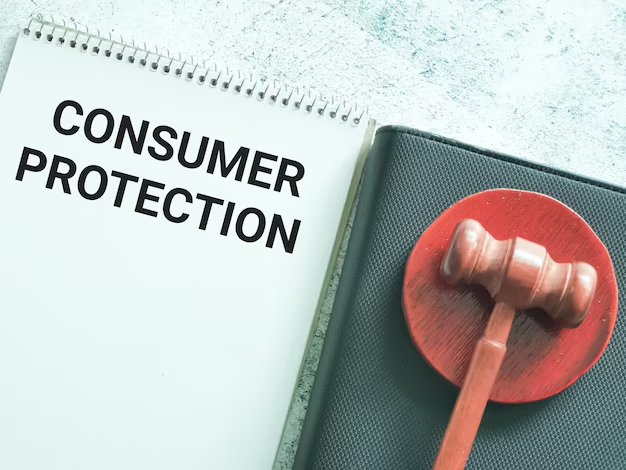
What Are The Rights And Responsibilities Of A Consumer In India?
In today’s fast-paced world, consumers play an essential role in the market by driving demand for services and goods. This authority entails safeguarding their interests and ensuring companies continue to operate morally. The Indian government has established clear consumer rights and obligations to promote a fair market and shield individuals from abuse.
The Consumer Protection Act of 2019, which strengthens the older Consumer Protection Act of 1986 with additional provisions to protect consumers in a modernised and globalised market, is the cornerstone of consumer protection in India. This law obligates businesses to ensure moral and knowledgeable consumer behaviour and provide consumers with rights meant to shield them from unfair business activities. In this blog, let’s discuss the rights and obligations that every Indian consumer has to be aware of.
Overview of The Consumer Protection Act, 2019
The Consumer Protection Act 2019 was passed to protect consumers and handle the market’s increasing complexity. The Act covers a broader range of products and services, such as digital transactions and e-commerce. Its rules protect customers from unfair business practices, deception, and exploitation by suppliers, manufacturers, and retailers. The legislation also establishes a system of consumer dispute redressal forums at the district, state, and federal levels, providing consumers with a legal way to pursue justice in situations involving exploitation or unfair practices.

Consumer Rights in India
The Consumer Protection Act of 2019 grants Indian consumers access to fundamental rights. These rights serve as a safety net, ensuring that individuals are not mistreated while participating in the market. Let us examine each of these rights in detail:
1. The Right to Safety
One of the most crucial consumer rights is the right to safety, which ensures that customers are shielded from marketing goods and services that pose a risk to life and property. This right is especially crucial in industries where defective or subpar products, such as healthcare, medicines, food, and autos, can have dire repercussions. The Right to Safety works to reduce the harm that potentially unsafe products might cause by ensuring that consumers can request products that comply with safety regulations and legislation.
For example, the Right to Safety allows a consumer to seek compensation for any potential injury caused by a defective product, such as an electrical appliance with a manufacturing defect that could result in fire hazards. Manufacturers and service providers must comply with quality standards and ensure the safety of their products for public usage.
2. Right to Choose
The Right to Choose ensures customers’ freedom to choose from a wide selection of competitively priced goods and services. This right prevents trade restrictions and monopolistic tactics from limiting consumer options. A free market with a wide range of options enables consumers to choose products based on price, quality, and personal preference. The government encourages healthy competition among companies to ensure consumers can obtain the best goods and services without being forced or under duress.
For example, suppose a business offers a package of services but requires the consumer to buy an extra service that isn’t necessary. In that case, the customer can exercise their Right to Choose by choosing not to participate in such coercive arrangements.
3. The Right to Information
The Right to Information ensures that buyers of goods and services have accurate, comprehensive, and transparent information. This right includes information about the pricing, standard, potency, purity, quantity, quality, and standard of the goods or services. Access to this data lowers the likelihood of consumers being duped or misled and helps them make well-informed purchases.
For example, labelling food goods clearly with information on ingredients, nutritional value, expiration date, and allergens guarantees that consumers can make educated eating choices. Similar to this, consumers of pharmaceutical products are required by the Right to be Informed to be aware of any potential adverse effects and contraindications.
4. Right to Consumer Education
The Right to Consumer Education ensures that consumers understand their rights and obligations in the marketplace and the precautions they can take to keep themselves safe. With the knowledge gained from this privilege, consumers can protect themselves from being taken advantage of by dishonest vendors or service providers. Educating consumers entails making them aware of their rights to safety regulations, legal safeguards, and complaint resolution procedures.
Through awareness programs, campaigns, and educational activities, consumers are encouraged to remain attentive to deceptive ads, unethical company practices, and product safety risks.
5. The Right to Be Heard
Thanks to the Right to be Heard, consumers can voice their comments, recommendations, or criticisms and anticipate that the appropriate authorities will take note of them. Consumers can express their grievances about a product or service by contacting the relevant channels. As a result of their duty to hear customers out and find a fair solution, businesses are encouraged to be more accountable.
For example, consumers who purchase a faulty product or receive subpar service can contact consumer forums or submit a complaint to the business.
6. The Right to Seek Redress
One of the most critical consumer rights is the ability to seek redress or compensation in situations involving unfair trade practices, exploitation, or subpar goods and services. Depending on the claim size, consumers may file complaints with consumer courts at the district, state, or federal levels to obtain just recompense for the losses they have endured.
For example, a consumer may file a claim in consumer court to get reimbursed for losses incurred if they buy an unsafe or defective product. The redressal process aims to quickly and fairly settle disagreements between customers and companies.
Also Read: How To Reply To A Legal Notice: Explained
Indian Consumers’ Responsibilities
Although consumers have many rights, they also have obligations to maintain an honest and moral marketplace. Carrying out these duties safeguards specific customers and maintains the market’s integrity.
1. Responsibility to Be Aware
Consumers are duty-bound to remain knowledgeable about the goods and services they buy. This entails being informed about a product’s terms and conditions, safety requirements, and quality standards. A knowledgeable customer is less likely to be duped by fraudulent or misleading advertising.
For example, a good customer should read reviews, verify safety certifications, and comprehend warranty terms before purchasing electrical equipment.
2. Responsibility to Think Independently
Instead of letting deceptive marketing or peer pressure influence their judgements, consumers should exercise independent judgement and base their choices on their requirements and preferences. Independent thought ensures consumers receive the most value for their money and helps them avoid impulsive decisions.
For example, rather than merely getting the latest model because it’s trendy, a responsible consumer will consider their own needs, such as battery life, camera quality, and storage capacity, before making a new smartphone purchase.
3. Responsibility to Speak Out
When customers have problems with a good or service, they must communicate their complaints and concerns. It’s critical to speak up to prevent others from experiencing the same problem and to seek personal retribution.
For example, patrons should inform management of their displeasure if they receive subpar service at a restaurant. This will offer the service provider a chance to improve and shield future clients from similar problems.
4. Responsibility to Complain
Consumers must make truthful and helpful complaints when unhappy with a good or service. Consumers should follow the proper channels for redress and base their complaints on valid concerns. Making baseless or fraudulent complaints can cost companies money and harm their brand.
When registering a complaint, a good customer should preserve all pertinent documentation, including bills, receipts, and warranties, to support their case.
5. Responsibility to Be Ethical
Consumers are required to act fairly and refrain from any actions that support dishonest or immoral company practices.
For example, consumers should refrain from supporting fake goods and engaging in illicit trade. Ethical consumer behaviour supports a fair and transparent marketplace.
Conclusion
In summary, consumer rights and obligations in India are necessary for an equitable and efficient market. The robust legal framework provided by the Consumer Protection Act of 2019 enables consumers to safeguard themselves against exploitation and pursue justice when needed. Consumers must also fulfil their obligations to act morally, make educated judgements, and support a vibrant market.
By being aware of and acting upon their rights and obligations, consumers can protect their interests, encourage moral business conduct, and aid in the growth of a responsible and transparent Indian market.
If you want to seek further guidance, visit our website: Innerwork Advisors
Also Read: What Are The Intellectual Property Rights In India?






